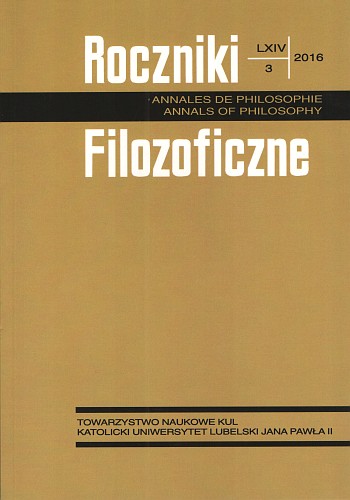Koncepcja woli według św. Augustyna – perspektywa antropologiczna
Saint Augustine’s Conception of the Will: A Philosophical-Anthropological Perspective
Author(s): Martyna KoszkałoSubject(s): Philosophy, History of Philosophy, Special Branches of Philosophy, Ancient Philosphy, Philosophy of Mind, Philosophy of Religion
Published by: Towarzystwo Naukowe KUL & Katolicki Uniwersytet Lubelski Jana Pawła II
Keywords: Saint Augustine; the structure of the soul; free will; choice; evil; happiness
Summary/Abstract: The subject matter of this article is the concept of free will presented in some of Saint Augustine’s works. In the first part, I present Augustine’s view about the structure of the human soul. I emphasize that, according to Augustine, our free will is both distinct from reason and memory, and identical to the soul and the moral agent. In the second part, I provide an overview of the selected features that are connected with human will and freedom, for example: (1) wanting, (2) being an agent, (3) responsibility, (4) auto-determination. Next, I investigate two interpretations of Augustine’s concept of the original sin (by W.S. Babcock and by Scott C. MacDonald). I try to demonstrate that the first one assumed a too strong concept of the continuity between the dispositions, intentions of the agent and his/her acts of will, while the second one treated freedom in a too intellectualistic manner. Eventually, I discuss the voluntaristic components of Augustine’s theory of happiness.
Journal: Roczniki Filozoficzne
- Issue Year: 64/2016
- Issue No: 3
- Page Range: 5-37
- Page Count: 33
- Language: Polish

